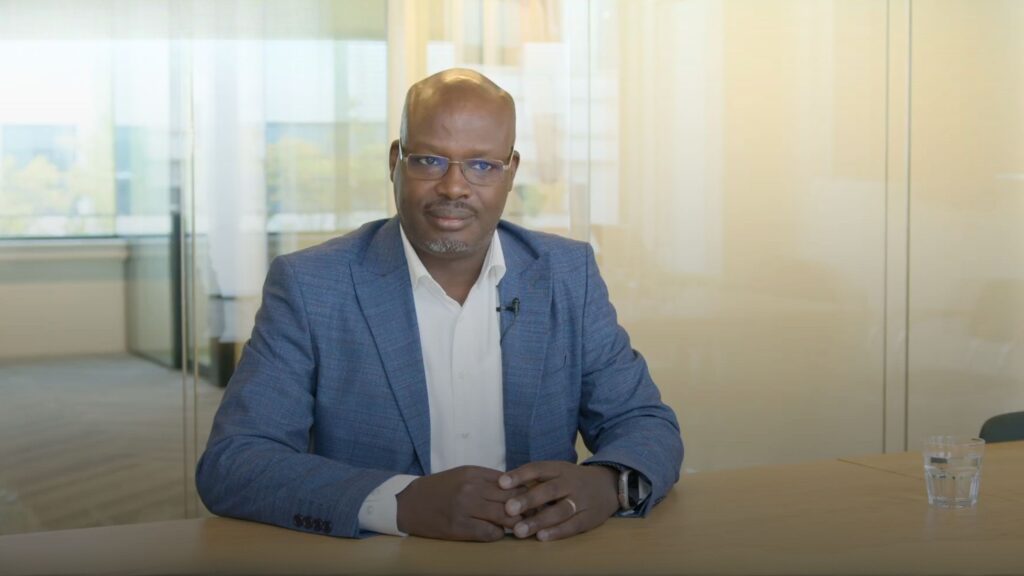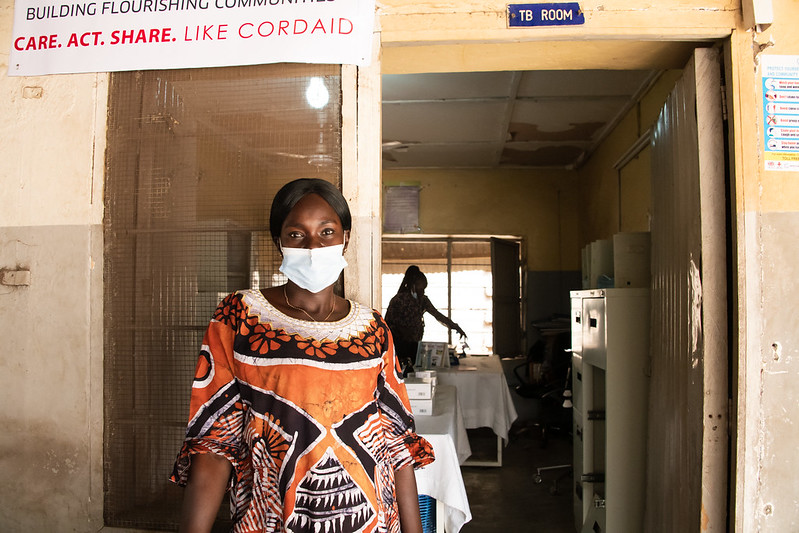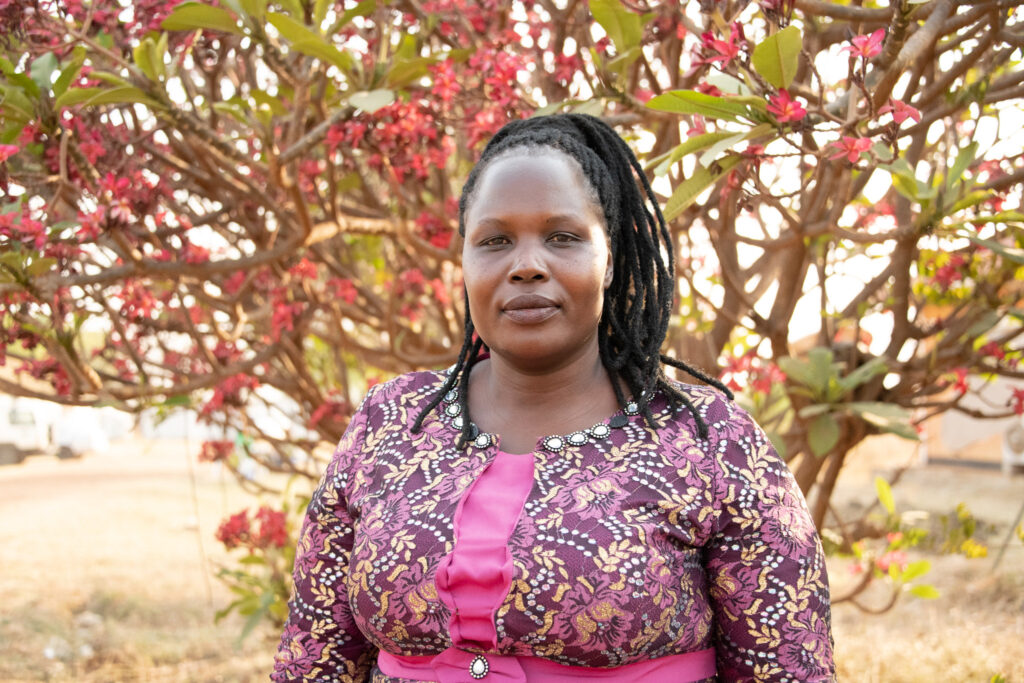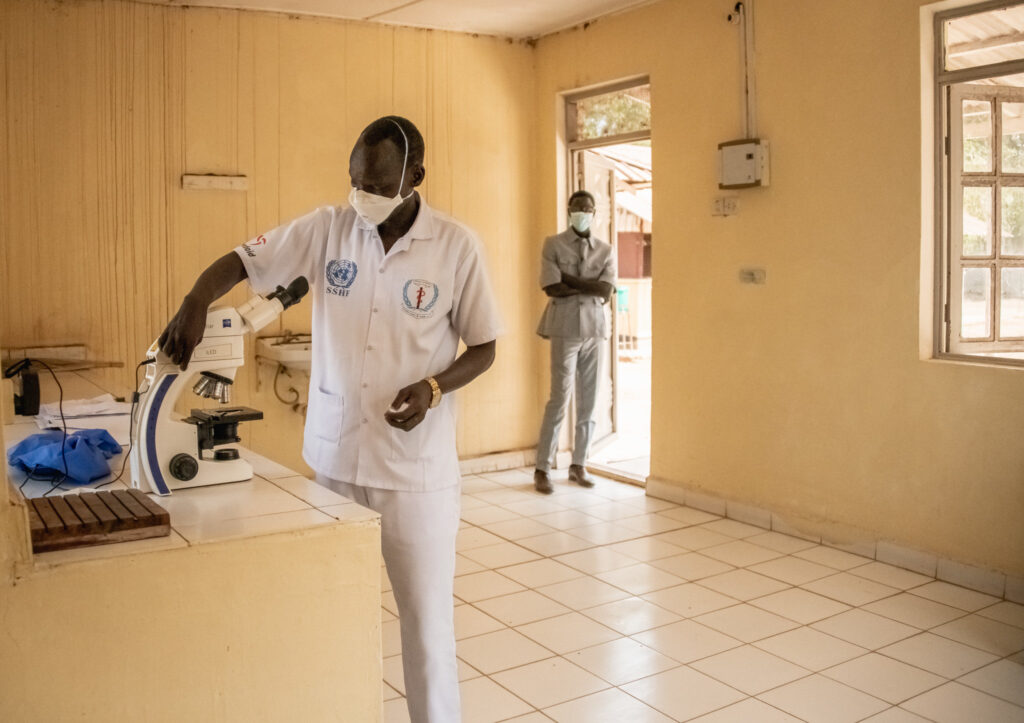In South Sudan, where conflict, floods, and mass displacement converge, a quiet but deadly resurgence of tuberculosis (TB) and HIV is threatening the lives of millions.

“TB and HIV are not in the news,” says Gerald Agaba, TB/HIV Programme Manager for Cordaid South Sudan. “But they are spreading. We don’t have another partner like the Global Fund supporting TB and HIV services at this scale. If the funding stops, it all stops.”
More than two million people have been displaced by violence spilling over from the conflict in Sudan. With families crowded into protection camps or makeshift settlements, access to even the most basic health services is difficult, let alone comprehensive prevention or treatment.

A fragile system, a determined response
South Sudan’s healthcare system is among the most fragile in the world. With just one physician for every 65,000 people (GEMS Development Foundation), and only 25% of health facilities able to treat TB, basic access is a daily struggle. There are just 53 GeneXpert machines in the entire country. Even fewer facilities offer HIV care.
“Some communities are completely cut off during the rainy season. In some areas, patients travel over 40 kilometres to reach the nearest TB treatment facility, and it can take eight hours,” Agaba explains.
Since 2016, Cordaid has been a sub-recipient of Global Fund support in South Sudan, implementing life-saving TB and HIV programmes. Today, Cordaid supports 183 facilities for TB care and covers 70% of the country’s TB treatment capacity.
“Through our programme, we’ve managed to start nearly 20,000 TB patients on treatment in 2024,” says Agaba. “And for the first time in years, we hit an 85% treatment success rate.”
These numbers are more than metrics—they represent lives saved, futures restored, and communities protected.
Champions of care in every community
The programme’s reach extends far beyond health facilities. More than 1,500 community health workers were thoroughly trained to provide screening, referrals, and basic care at the household level.
“They’re not doctors,” Agaba says. “But they’re trusted. They know their neighbours. If someone has a persistent cough, they refer them to a specialist. If a child has pneumonia, they give the first treatment. That can mean the difference between life and death.”
In a country where stigma still deters many from seeking care, Cordaid also trains community champions—people who have survived TB or are living with HIV. These “expert clients” now lead by example, talking to their neighbours and restoring hope.
“They say, ‘Look at me—I was sick, I took my meds, now I’m fine.’ It’s powerful,” Agaba says.

Innovation for impact and accountability
Cordaid’s approach is about more than coverage—it’s about innovation and accountability. A key breakthrough has been the introduction of biometric payments for health workers.
“Before, we had issues—ghost names, double payments,” says Agaba. “With biometrics, your fingerprint is your ID. If you’re not in the system, you don’t get paid.”
Cordaid monitors payments in real time, using GPS tracking and photographs to ensure funds are delivered transparently and efficiently.
To strengthen patient care and data systems, Cordaid distributed 470 tablets, preloaded with data bundles, to support real-time monitoring and reporting. Clinics use them to log patient treatment details in the electronic TB register. If a facility goes silent for two days, the programme team is alerted immediately.
“We’re using the tablets not just for reporting, but for virtual learning,” says Agaba. “We run sessions every month on WhatsApp. Director generals, ministry officials, the State Ministry of Health, the County Health department and Facility health workers are all in the same group. If there are issues, we resolve them in real time.”
The project has also renovated and solar-powered 21 GeneXpert laboratories, enabling more reliable TB diagnosis, HIV viral load testing and early infant diagnosis (EID).

Rooted in communities
Cordaid works in close partnership with local NGOs and community leaders to train health workers, deploy mobile clinics and distribute medicines, with a strong focus on gender-sensitive care—for example, by prioritising female outreach workers who are often more trusted in local communities.
Importantly, Cordaid does not run a parallel system: all programme activities are implemented through South Sudan’s national and subnational health structures. This means capacity strengthening through working with Ministry of Health staff, using public health facilities, and aligning with government reporting systems. While Cordaid facilitates performance-based top-up payments to health workers, it does not manage or supervise them directly. By reinforcing existing systems rather than creating separate ones, this approach promotes local ownership and builds sustainable, future-proof systems.
A system that works—but only if it’s sustained
But now, all this progress hangs in the balance.
The Global Fund is currently the only major funder of HIV and TB services in South Sudan. If that support weakens, the consequences could be devastating. “We’re not just saving lives—we’re restoring dignity and stability,” Agaba says.
“Every clinic that stays open, every health worker who gets paid, every mother who doesn’t have to walk eight hours with a sick child—that’s what global solidarity looks like.”
And yet, with the ongoing trends on ODA reduction and donor funding cuts, the Global Fund has had to make some tough choices in this grant cycle to keep life-saving care going in fragile settings. As a result, funding for South Sudan has been reduced by around 11% for the period 2024 to 2026, including a direct $1 million impact on the Cordaid project.
A call to action
The cuts to external aid financing now facing countries like South Sudan are a direct result of Official Development Assistance (ODA) deprioritisation in many donor countries. While the reprioritisation exercise, started by the Global Fund, is intended to spare life-saving activities, it is happening in a context of growing health needs. This is what happens when global promises go unmet. When funds fall short, lives and progress are put at risk.
The Global Fund to Fight AIDS, Tuberculosis and Malaria eighth replenishment campaign is now underway. The Global Fund is seeking to raise $18 billion to support its work from 2027 to 2029.
Governments must act now. The progress made is fragile. Without sustained investment, we risk undoing a decade of hard-won gains.
As Agaba warns, “We could see a full-blown TB epidemic. And it wouldn’t stay here. Diseases don’t know borders.”